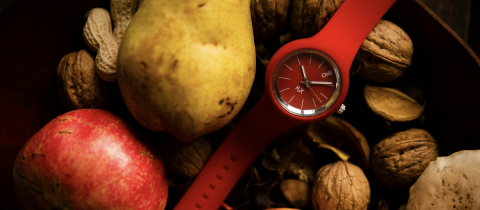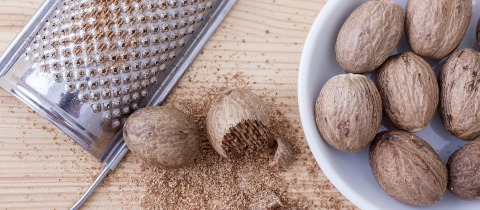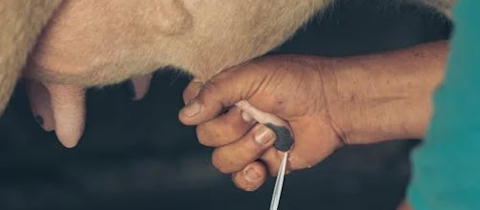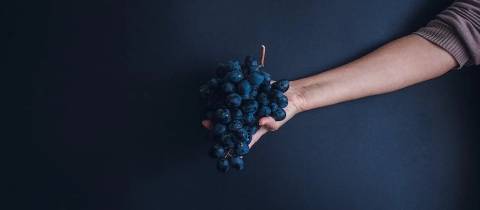“It’s never too late to think about your brain health. It’s never too late to think about, ‘how can I delay Alzheimer’s?’, and MOSH is your partner.”
When it comes to dietary supplements and natural remedies, it’s like their advocates are standing at the edge of a cliff. They’re missing the sound evidence to prove that all this works in humans but they want to believe it, and so they take a leap of faith. And that leap comes in the form of words.
Those eyebrow-raising words at the top about MOSH being your “partner” in “delaying Alzheimer’s?” They were spoken by Maria Shriver at the end of a TV segment on KTLA. Shriver is the journalist and brain health advocate who famously married then divorced Arnold Schwarzenegger. She is also the niece of John F. Kennedy. On KTLA, she was interviewed alongside her son, actor Patrick Schwarzenegger, to bring awareness to their new protein bar that apparently “fuels your brain and body” (technically, your brain is part of your body, so it feels redundant but there’s a reason for this). It’s called a MOSH bar. I would have called it the Schwarzenebar: Hard to Spell, Impossible to Ignore. Then again, I’m not on their marketing team.
Because MOSH bars are not pharmaceutical drugs, Shriver and her son can’t claim that eating the bar prevents Alzheimer’s disease or that it treats it: in fact, their website says they cannot make these claims. Strong claims like these cannot be made for the sorts of dietary supplements the bar contains, like lion’s mane mushroom and ashwagandha. Instead, they have to make vaguer assertions and let the customer take the leap of faith. In the process of doing that, the people behind MOSH bars end up feeding the same unfounded hype we see throughout the multibillion-dollar supplement industry.
The wrong kind of experts
Alzheimer’s disease is of significance to Maria Shriver. Her own father was diagnosed with it, and she started advocating to bring awareness to the disease and raise money to help end it.
On the MOSH website, you will read the claim that Alzheimer’s is a disease that discriminates against women. Two out of every three brains that develop the disease belongs to a woman. This is true but a bit more complicated than it might appear. The Alzheimer’s Association points the finger mainly at longevity: women, on average, live longer than men, and the biggest risk factor for developing Alzheimer’s disease is age. From that perspective, it’s not that it discriminates against women but rather against older adults. It may be that the risk of getting the disease differs between men and women of the same age, but there is conflicting evidence there. More studies are needed, and to MOSH’s credit, 1% of sales are donated to support research, advocacy, and awareness on the topic of women and Alzheimer’s disease through Shriver’s own Women’s Alzheimer’s Movement organization.
Funding research is great but MOSH is primarily aimed at consumers and thus has a public face, which includes a wellness blog. I have seen worse offenders, to be sure, but its writer states that electromagnetic frequencies, such as those emitted by cell phones, may disrupt your memory and stress management (not true) and that eating blueberries for breakfast will help you do well on a school test (again, not true). The principle at play here is to ignore the body of evidence and basic plausibility and to latch onto preliminary studies that look either scary or nifty.
On the bright and joyful MOSH bar website, we see a succession of colourful circles with photos of the experts who are recommending the protein bar, most of whom have “doctor” in front of their name. A doctor-recommended protein bar? It taps into our desire for expert vetting, but looking up these people is a reminder that even physicians can believe weird things. One of them calls herself a “neuro-nutritionist” and lists Deepak Chopra as an interest on her LinkedIn profile. Another practices functional medicine (a pseudomedical approach in which a bevy of tests is conducted to find anything that is outside the normal range to be corrected by a laundry list of unproven supplements) and has a book out blurbed by Mark Hyman, the father of functional medicine. Yet another has had his own protocol denounced by the Alzheimer’s Society of Canada for not being science based. And the “board-certified health coach” believes in detox and studied integrative medicine, a marketing term for the integration of actual medicine with unproven and disproven remedies like herbs and homeopathy.
On the MOSH YouTube channel, Patrick Schwarzenegger interviews Dr. Uma Naidoo whose book, This Is Your Brain on Food, I previously dismantled for consistently misrepresenting scientific studies.
As for Maria Shriver and Patrick Schwarzenegger, none of them hold scientific degrees as far as I can tell. So what exactly did they put inside their protein bars to keep our brain fit and is there any reason for these ingredients to be in there?
Noshing on scientific crumbs
MOSH bars contain seven ingredients that are meant to be “brain nutrients and superfoods.” Three of them are quite banal (collagen, vitamin B12 and D3) while the rest are a bit trendier. None of them have been conclusively shown to improve brain function or to ward off cognitive decline.
For collagen, I was able to find two studies in humans: a one-month pilot study in 30 healthy people and a one-week study in 13 men. The hype over collagen and brain health seems to stem from an increase in a type of collagen in the brain of patients with Alzheimer’s disease as a potential protective mechanism, but supplementing with collagen has not been shown to benefit brain health.
Vitamin D supplementation trials for improved cognition in older adults are all over the place in terms of their results. We should all be mindful of the fact that claims of a vitamin D deficiency epidemic are grossly exaggerated and that vitamin D’s messianic attributions are rarely borne out by the data. As for vitamin B12, it is unlikely to help in any way unless you are deficient in it.
MOSH bars also contain omega-3s, but a 2012 Cochrane review found high-quality evidence that there was no cognitive benefit to taking omega-3 supplements for healthy older adults. Have we learned more in the ensuing decade? A scoping review from Quebec-based researchers was published last year. Unlike the Cochrane group, they were much more generous in the kind of evidence they looked at. For healthy participants between the ages of 20 and 60, the largest and longest studies have been mixed in their results. For participants 60 and older, the biggest studies all came up empty. And as the authors report, there are issues with many of these studies, from the type of oil that is used in the placebo pills to the dose of omega-3s that is tested. Overall, the results may whet our appetite but they do not satiate it.
There’s another type of oil in MOSH bars: MCT oil, which stands for medium-chain triglycerides and which often comes from coconut oil. The tie to brain health is that, in patients with Alzheimer’s disease, parts of their brain use less glucose, and so some people started to wonder if something else could be fed to them instead. That something was ketone bodies, which can be produced when our body metabolizes MCTs. The problem is that dying cells in Alzheimer’s disease may not be rescued by simply giving them a different form of energy. As Alzheimer’s Research UK mentions on its website, “There’s so much we don’t understand about how and why nerve cells die during Alzheimer’s, causing its devastating symptoms, but it’s more complex than needing energy.” Also, it’s unclear how MCT oil would prevent Alzheimer’s disease in the first place.
The last two special ingredients are labelled “adaptogens,” which is a loose group of poorly studied herbs and mushrooms claimed to act as buffers against stress with zero side effect. (I’ve written more in-depth about the hype over adaptogens here.) MOSH bars contain ashwagandha, the popular shrub also known as Withania somnifera. There are very few (and very small) studies of the plant being tested to improve cognition in humans, and a 2020 review of the evidence on ashwagandha treating neurological problems states that “clinical studies of ashwagandha for various brain disorders is scarce and not promising.” The problem with plants, it’s worth pointing out, is that even if there is an active ingredient in there, the amount will vary from plant to plant, season to season, soil to soil, meaning that you are getting an unknown dose from one batch to the next.
Finally, we get to lion’s mane mushroom, a popular adaptogenic addition to products like coffee meant to boost your brain power. As with all of these ingredients, there is evidence from laboratory studies that it could help improve things like memory, but the real test comes when you give it to people. A recent review of the evidence highlights three trials in humans, all of them too small to conclude anything.
Even if these ingredients had been demonstrated to improve brain health (which they have not), the question would become: are you getting enough of them in a single MOSH bar? It would be an impossible question to answer. Their website states that, except for vitamins B12 and D, they do not disclose exact quantities of the brain nutrients in their bars because the U.S. regulatory agency doesn’t have recommended daily values and the quantities vary slightly from bar to bar.
In the end, MOSH bars are no different from your typical wellness or functional nutrition product: they are sprinkled with the magical ingredients du jour meant to soothe our anxieties about getting old, wrapped up in a pretty package and hyped up by so-called experts who seem to have decided that scientific evidence was too constricting on their practice. By the way, this is not Patrick Schwarzenegger’s first nutritional rodeo: he has invested in Liquid IV, an electrolyte powder that fuels unscientific anxieties by claiming to be “non-GMO;” Super Coffee, a bottled drink with MCT oil claimed to “increase your focus;” and MUD\WTR, a coffee alternative with “Ayurvedic herbs and functional mushrooms,” very much in line with MOSH.
If you want to reduce your risk of developing Alzheimer’s disease or dementia as a whole, stay physically active, connect with people, eat well, and avoid smoking and high alcohol consumption. If you want to add a MOSH bar to this because you like the taste, that’s fine. But don’t let the Hollywood smiles of its founders and the sprinkle of fashionable natural ingredients fool you. It’s no more brain fuel than your average protein bar.
Take-home message:
- MOSH bars are protein bars created by Maria Shriver and her son, Patrick Schwarzenegger, and whose ingredients are claimed to support brain health
- Their brain nutrients (lion’s mane, ashwagandha, omega-3s, collagen, and vitamins B12 and D) have actually not been shown to improve cognition or delay brain problems in reliable human studies
- This product is endorsed by doctors who have embraced non-scientific practices, like functional medicine and integrative medicine, which rely heavily on unproven and disproven dietary supplements







